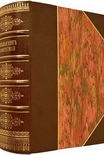Think Again: The Power of Knowing What You Don't Know by Adam Grant (best e book reader for android txt) 📗

- Author: Adam Grant
Book online «Think Again: The Power of Knowing What You Don't Know by Adam Grant (best e book reader for android txt) 📗». Author Adam Grant
That was a common mistake in 2016. Countless experts, pollsters, and pundits underestimated Trump—and Brexit—because they were too emotionally invested in their past predictions and identities. If you want to be a better forecaster today, it helps to let go of your commitment to the opinions you held yesterday. Just wake up in the morning, snap your fingers, and decide you don’t care. It doesn’t matter who’s president or what happens to your country. The world is unjust and the expertise you spent decades developing is obsolete! It’s a piece of cake, right? About as easy as willing yourself to fall out of love. Somehow, Jean-Pierre Beugoms managed to pull it off.
When Donald Trump first declared his candidacy in the spring of 2015, Jean-Pierre gave him only a 2 percent chance of becoming the nominee. As Trump began rising in the August polls, Jean-Pierre was motivated to question himself. He detached his present from his past, acknowledging that his original prediction was understandable, given the information he had at the time.
Detaching his opinions from his identity was harder. Jean-Pierre didn’t want Trump to win, so it would’ve been easy to fall into the trap of desirability bias. He overcame it by focusing on a different goal. “I wasn’t so attached to my original forecast,” he explained, because of “the desire to win, the desire to be the best forecaster.” He still had a stake in the outcome he actually preferred, but he had an even bigger stake in not making a mistake. His values put truth above tribe: “If the evidence strongly suggests that my tribe is wrong on a particular issue, then so be it. I consider all of my opinions tentative. When the facts change, I change my opinions.”
Research suggests that identifying even a single reason why we might be wrong can be enough to curb overconfidence. Jean-Pierre went further; he made a list of all the arguments that pundits were making about why Trump couldn’t win and went looking for evidence that they (and he) were wrong. He found that evidence within the polls: in contrast with widespread claims that Trump was a factional candidate with narrow appeal, Jean-Pierre saw that Trump was popular across key Republican demographic groups. By mid-September, Jean-Pierre was an outlier, putting Trump’s odds of becoming the nominee over 50 percent. “Accept the fact that you’re going to be wrong,” Jean-Pierre advises. “Try to disprove yourself. When you’re wrong, it’s not something to be depressed about. Say, ‘Hey, I discovered something!’”
MISTAKES WERE MADE . . . MOST LIKELY BY ME
As prescient as Jean-Pierre’s bet on Trump was, he still had trouble sticking to it in the face of his feelings. In the spring of 2016, he identified the media coverage of Hillary Clinton’s emails as a red flag, and kept predicting a Trump victory for two months more. By the summer, though, as he contemplated the impending possibility of a Trump presidency, he found himself struggling to sleep at night. He changed his forecast to Clinton.
Looking back, Jean-Pierre isn’t defensive about his decision. He freely admits that despite being an experienced forecaster, he made the rookie mistake of falling victim to desirability bias, allowing his preference to cloud his judgment. He focused on the forces that would enable him to predict a Clinton win because he desperately wanted a Trump loss. “That was just a way of me trying to deal with this unpleasant forecast I had issued,” he says. Then he does something unexpected: he laughs at himself.
If we’re insecure, we make fun of others. If we’re comfortable being wrong, we’re not afraid to poke fun at ourselves. Laughing at ourselves reminds us that although we might take our decisions seriously, we don’t have to take ourselves too seriously. Research suggests that the more frequently we make fun of ourselves, the happier we tend to be.* Instead of beating ourselves up about our mistakes, we can turn some of our past misconceptions into sources of present amusement.
Being wrong won’t always be joyful. The path to embracing mistakes is full of painful moments, and we handle those moments better when we remember they’re essential for progress. But if we can’t learn to find occasional glee in discovering we were wrong, it will be awfully hard to get anything right.
I’ve noticed a paradox in great scientists and superforecasters: the reason they’re so comfortable being wrong is that they’re terrified of being wrong. What sets them apart is the time horizon. They’re determined to reach the correct answer in the long run, and they know that means they have to be open to stumbling, backtracking, and rerouting in the short run. They shun rose-colored glasses in favor of a sturdy mirror. The fear of missing the mark next year is a powerful motivator to get a crystal-clear view of last year’s mistakes. “People who are right a lot listen a lot, and they change their mind a lot,” Jeff Bezos says. “If you don’t change your mind frequently, you’re going to be wrong a lot.”
Jean-Pierre Beugoms has a favorite trick for catching himself when he’s wrong. When he makes a forecast, he also makes a list of the conditions in which it should hold true—as well as the conditions under which he would change his mind. He explains that this keeps him honest, preventing him from getting attached to a bad prediction.
What forecasters do in tournaments is good practice in life. When you form an opinion, ask yourself what would have to happen to prove it false. Then keep track of your





Comments (0)